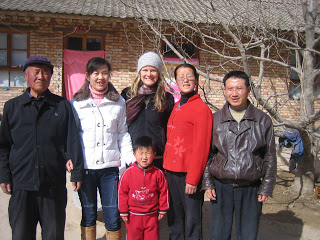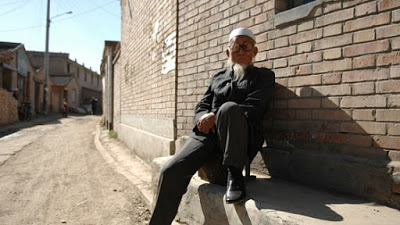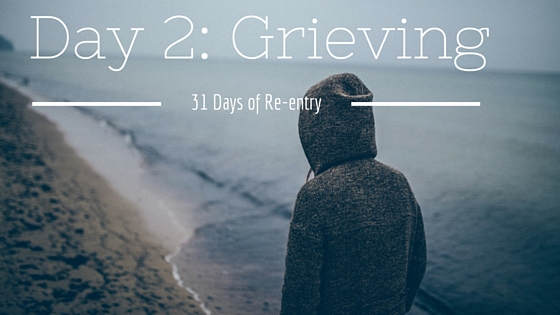This is the painting I chose to hang in my bedroom when my parents moved houses during my freshman year of college. That was 18 years ago and since then I have moved my possessions 11 times, living in 3 different countries, 2 different states and 6 different cities. Each time I would return to my parent’s house, I would study that painting and imagine I was the girl in the pink dress, wondering how to get home.
In her, I found a kindred spirit and someone who looked as homeless as I felt.
She always seemed to be longing for something more, but never finding the strength to get there. Many Jim and Elisabeth quotes get tossed around, but one of their quotes from a letter written before they were married made an impression on me: “Let not our longing slay the appetite of our living.”
When I was in college, I longed to know which roads I would take–which job I would end up doing and in which city. Who I would befriend and if/when I would get married.
After college in the thick of teaching public school in Chicago, I wondered if life would always be like this. Would I ever meet someone? Have a family? Go overseas like I had always wanted?
When I was finally in China, I longed for a partner and someone to be my “constant” in a world that was ever changing. I yearned for that man and hoped for a family of my own. I wanted to make a difference in a country that makes up one fifth of the world’s population. And yet I still longed for America and the familiar.
And after returning from China, getting married and having children, I now long for a meaningful life. I hope our family can live counter-culturally and stand out from the seemingly homogenous culture that is now our “home.”
Longing.
Let not our longing slay the appetite of our living.
On a run one dreary spring day in Chicago before leaving for China, I ran under the elevated train (El) tracks that were stained, rusted and tagged with graffiti. There was a railing that ran parallel underneath and in it someone had planted a tiny garden that pierced the day with its cheerfulness. Even though you are miserable because of the cloudy days, the crowded streets and the lonely commutes home, you can grow here, God seemed to say.
Many years later, on another run, this time in China, I passed a dried up field in the outskirts of the city which had become a dumping ground for trash and refuse. I had a holy moment when I noticed a single yellow flower bursting through the sad field, thriving in spite of its environment. You can grow anywhere, God seemed to be saying to me.
Let not our longing slay the appetite of our living.
I believe humans will always long for more. We long to know the future and to make a difference. We long for love, community, belonging, peace, healthy challenges, beauty and meaning. This is not just true to the Christian experience, it is true to the human experience.
But the Christian takes the longing one step further by naming our hope and defining our longing for an eternal home.
Yes, there is a place for contentment, being thankful and having a grateful heart, but some degree of longing is appropriate and reminds us that we are out of place here. We are a garden in a concrete jungle and a flower in the wilderness. Our longing is good, but it is temporary. And in the meantime, we are to beautify our surroundings–wherever God places us.
(For practical ways I’m trying to do this, check out Readjusting: Same Tools, New Work Space)
Follow me on Twitter and Facebook
This post is day 13 of the series “Re-entry: Reflections on Reverse Culture Shock,” a challenge I have taken to write for 31 days. Check out my other posts in the series:
Day 1: Introduction
Day 2: Grieving
Day 3: No One Is Special
Day 4: Wasted Gifts
Day 5: I Never Expected…
Day 6: Identity: Through the Looking Glass
Day 7: Did I mishear God?
Day 8: When You Feel Like Shutting Down
Day 9: Caring for your Dorothy
Day 10: You’re Not the Only One Who’s Changed
Day 11: 12 Race Day Lessons for Serving Overseas
Day 12: Confessions of an Experience Junkie
Day 13: Longing for Home
Day 14: Readjusting: Same Tools, Different Work Space
Day 15: Book Review: The Art of Coming Home
Day 16: The Story of My “Call”
Day 17: Is Missions a “Higher Calling”?
Day 18: And Then I Fell in Love
Day 19: Is God Calling You Overseas?
Day 20: Life Is Not Seasonal
Day 21: What I Took and What I Left Behind
Day 22: Groundless, Weightless, Homeless
Day 23: When the Nations Come to You
Day 24: The Call to Displacement
Day 25: Scripture Anchors for Re-Entry
Day 26: In the Place of Your Exile
Day 27: Resources for Re-entry
Day 28: A Time for Everything: A Prayer of Leaving
Day 29: Journal: 8 Months After Re-Entry
Day 30: 12 Survival Tips for Re-Entry
Day 31: A Blessing
(Day 32: Writing is Narcissistic (And Four Other Reasons Not to Write)–a reflection on this Write 31 Days experience)
Linking up with #WholeMama
Painting: “Christina’s World,” by Andrew Wyeth (American), 1948.












